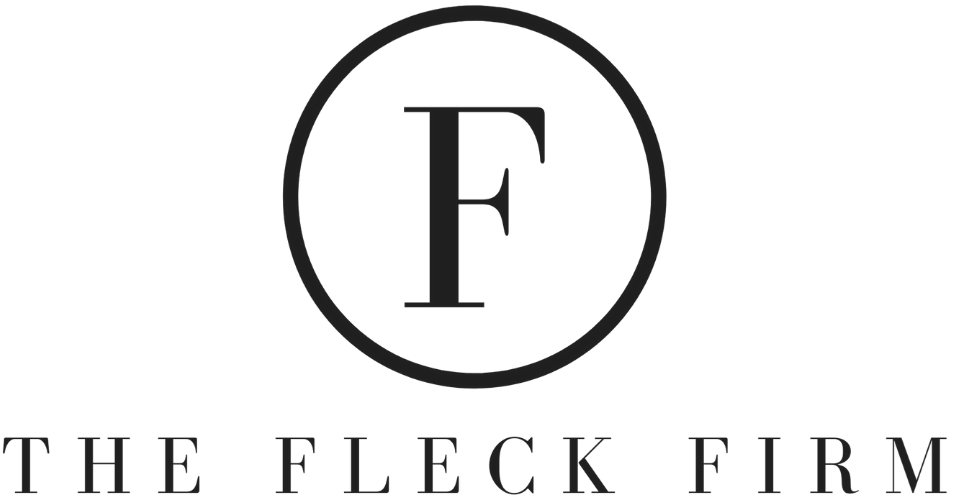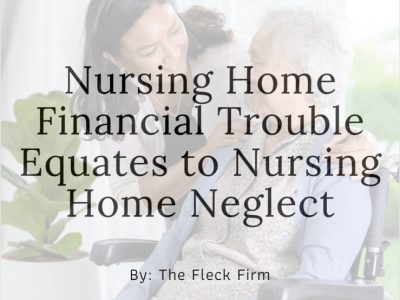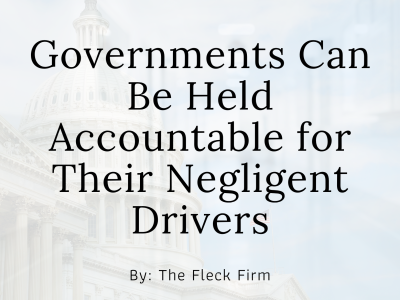No one likes seeing a business struggle and close unless you’re the competition. It’s especially concerning when that business is a nursing home. Residents will suffer neglect, accidents, and injuries without sufficient staff and resources. If you or a loved one are in a nursing home, you must be very watchful of the level of care and make your voice heard if it falls to an unacceptable level.
Whether it’s an auto repair shop, grocery store, or factory, customers will suffer if there isn’t enough cash flow to pay bills and keep people on the job. Nursing home customers are the elderly and disabled, many of whom may have nowhere else to go. Poor finances don’t excuse harm caused by negligence and indifference, but it may make it more likely.
Many Nursing Homes are Less Healthy Than Their Residents
The American Health Care Association (AHCA), representing thousands of nursing homes, recently announced that more than half of all US facilities are losing money. The organization blames decreasing numbers of residents, rising healthcare costs, and low Medicaid reimbursements, reports Quartz.
Medicaid, the state and federal medical care insurance for those with low income, pays for about 60% of all nursing home residents. Their reimbursement rate only covers about 68% of nursing home costs. How well would your company be doing if you owned a business where 60% of your customers pay you only about 68% of what it costs to serve them?
The ACHA warns that if the federal government doesn’t take action to change the situation, more nursing homes will close. That will cause a ripple effect across communities:
- People well enough to be discharged from hospitals but not well enough to be sent home often recuperate in nursing homes. If they’re not an option for your local hospital, patients may be forced to remain where they are, or they’ll go home, and family members will need to volunteer to care for them, or someone will have to pay for at-home care
- With fewer options, people going into nursing homes may need to travel farther from home. This will make it harder for friends and family members to visit them
- Surviving nursing homes may go from too few residents to too many. If they can’t ramp up their care, residents may suffer when too few staff try to cover too many residents
The COVID-19 pandemic sped up nursing homes’ downward spiral:
- They spent money on personal protective equipment for staff and residents
- Elective surgeries stopped, so nursing homes didn’t earn income caring for patients needing to recuperate
- More than 160,000 residents died during the pandemic, so the income expected for their future care never came
- More than 3,000 staff members died. This left thousands of jobs to fill and brought home the dangers of infectious diseases to surviving co-workers. Many of them decided the risks weren’t worth it and left. This created thousands of job openings requiring substantial pay increases to attract replacements
- Many people who may have gone to nursing homes, seeing how easily COVID-19 spread, decided to receive long-term care at home instead
People are getting elective surgeries again, but nursing home occupancy isn’t back to pre-pandemic levels.
Other attorneys take contingent fees of 33% to 50% of your settlement.
We want you to keep more of your money.
Our contingent fee is only 30% on cases settled prior to filing suit.
Without More Residents, Nursing Homes Won’t Have the Resources to Hire More Staff
Shortages of qualified healthcare workers are widespread, but it’s especially bad in nursing homes. Without enough experienced, knowledgeable employees to care for residents, it’s just a matter of time before:
- A resident who should be supervised but isn’t falls and breaks a bone, wanders off the property or is physically or sexually assaulted by an employee or another resident
- Bed-bound residents aren’t turned as often as they should, and bedsores result
- Overworked nurses make medication mistakes, so residents receive the wrong drugs in the wrong dosage
Nursing homes can’t safely increase the number of residents without enough employees to care for them. Staff shortages are forcing cuts in resident counts, decreasing revenues, and making it harder to hire more workers.
According to Quartz:
- Nursing homes are about 280,000 nurses short compared to 2020
- Nurse salaries have increased by about 30% from 2020 to 2022, but that’s not enough to get more job candidates interested in working in the industry. Nurses are in high demand, and other specialties still pay better
- It may be 2027, if ever, for the industry’s workforce to reach pre-pandemic levels
Nursing homes have a chicken and the egg problem. They need more residents to pay for more staff but can’t fill up with residents without enough staff to care for them.
What are the Options?
Many nursing homes have closed or merged. About 5% have turned to private equity investment to keep their doors open. But private equity’s concern is the return on investment. Without new revenues, cutting costs will be the focus. That often means reduced resident care, which can cost them their lives.
Congress doesn’t seem to have much appetite for spending billions more on keeping nursing homes afloat. The Biden administration has stated it wants minimum nursing home staffing levels, but where those employees will come from or who will pay them is unknown.
Get the Legal Help You Need in Kentucky
If you or a family member are injured due to neglect or negligence by nursing home staff, we can help. Call the Fleck Firm at (270) 446-7000 or contact us online to schedule a free consultation. We’ll talk about what happened, the injuries, how the law may apply, and your best options to proceed. Insurance companies have lawyers. You should have one too.








